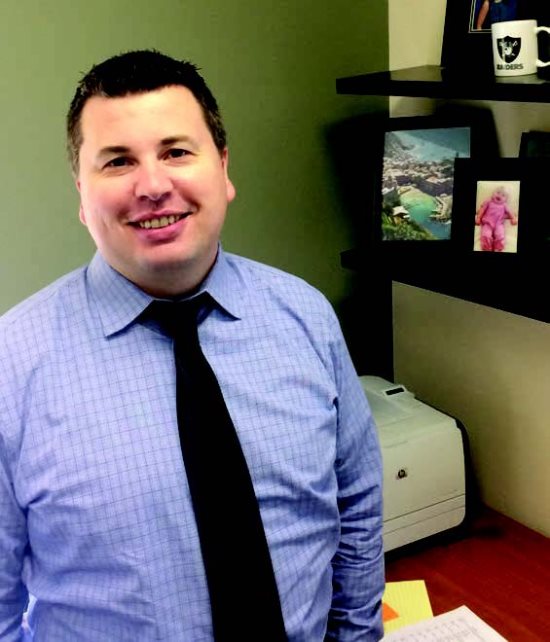
| ||||||
The Moraga administrative services department covers more than finance; it also deals with human resources, risk management and special projects. But being hired two months before the budget approval at the end of June, the financial aspect is taking the bulk of the new director's attention.
With the town finally out of the danger zone and rescinding its fiscal emergency, Tanner says that he was in that situation before. For three and a half years Tanner worked for the city of Desert Hot Springs, where it used the same exceptional procedure, declaring its insolvency. "The city lost a huge percentage of its revenue when the recession hit," he remembers, "something quite different from Moraga where unforeseen natural catastrophes depleted the reserves."
Tanner agrees that having the reserve drop in the 10 percent range of the general fund was not a healthy situation. "It is dangerous because the budget is so small," he explains. "If your budget is $60 million, then a 20 percent reserve still gives you enough to do things; in Moraga, it is not the case." He adds that the policy that was approved to get to a 50 percent reserve makes sense for Moraga and he believes that the town will get there.
Desert Hot Springs was not the first experience Tanner had administering a city. He was hired as the interim city manager for the city of Rio Vista in 2013, after being a administrative analyst for the city of San Ramon for three years. Tanner holds an MBA from John F. Kennedy University.
He wanted to return to the Bay Area, its more balanced climate, where he and his wife were raised, and where family is largely located. He finds Moraga, its welcoming staff and community the perfect place where he wants to flourish.
Looking at the data and documents he found upon arrival, Tanner says that the town has been well managed and had put in place the mechanism, procedures and documentation that are perfectly adequate. If the storm drain funding is addressed through the assessment that was put to a vote, he thinks that most long-term potential headaches for Moraga's infrastructure will be addressed. But Tanner noticed the town's unfunded pension liability amounts to $5.5 million.
He notes that Moraga requires that its employees pay an additional 1 percent to CalPERS, which makes the town a bit less attractive than other municipalities but should allow to keep the debt from escalating. For him, getting out of CalPERS is out of the question, since the system would require close to $30 million from Moraga to let it go. Tanner adds that he and town manager Cynthia Battenberg will start working on a long-term CalPERS plan once the 2018-19 budget is approved.
The other aspect of Moraga's finances that will need focused attention is the asset replacement fund. Even if roads and storm trains are taken care of, the town has not historically made any strides in saving to maintain/replace its other assets: the vehicles (police and maintenance), the police equipment, the library, 329 and 335 Rheem Boulevard buildings, the Hacienda de las Flores, etc. In 2014, a sub-committee of the audit and finance committee had estimated the unfunded depreciation balance at the time, besides roads and drains, to be more than $5 million. Its recommendation had been that the town set aside $600,000 every year to keep up its assets.
Tanner said that Moraga, with its strong pluses such as quality of life and excellent school district, is a financially sound community, deriving important revenue from property tax, but that it could use more sales tax revenue. He would not go as far as the solution found by Desert Hot Springs to solve its struggling finances: allowing medicinal cannabis cultivation and commerce, but he says that Moraga could use a more dynamic business environment.
Reach the reporter at:
